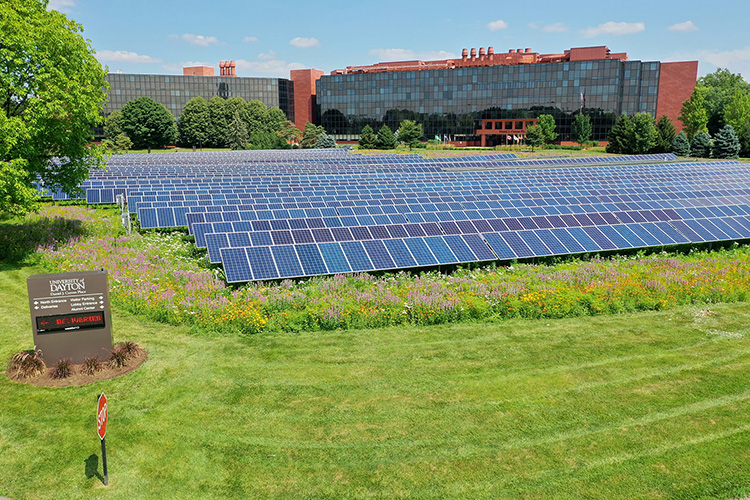Hanley Sustainability Institute

U.S. News lists UD in slideshow of "10 environmentally friendly" campuses
By Mark Gokavi
U.S. News & World Report named the University of Dayton as one of "10 Environmentally Friendly College Campuses" as part of their Best Colleges website section.
"For college hopefuls who are passionate about the environment, an undergraduate institution's policies on sustainability may be a major factor they consider during their school search," the slideshow story reads. Here are 10 eco-friendly U.S. colleges and universities that placed in the top 50 of that ranking."
UD has also been included in the Princeton Review Guide for green colleges. The University has achieved a Gold STARS rating from the Association for the Advancement of Sustainability in Higher Education and became the first U.S. Catholic university to divest from fossil fuels. The school's president signed Second Nature's climate commitment in 2019 and formed the UD Climate, Action, Resilience and Environmental Sustainability (CARES) council.
Under the heading "What makes this school eco-friendly," U.S. News listed UD's new sustainability bachelor of arts and bachelor of science degrees and the six-acre solar prairie at Curran Place.
For more sustainability news, visit the Hanley Sustainability Institute's news blog.
